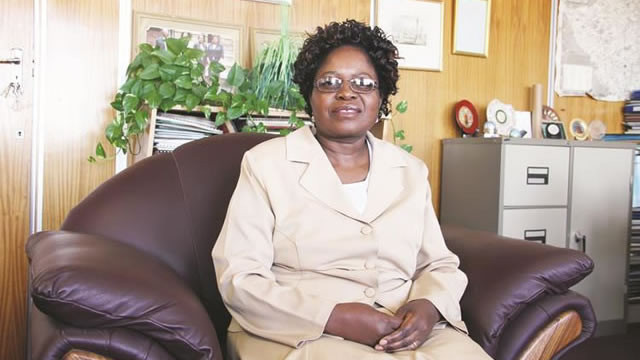
ZIMBABWE’S Auditor-General, Mildred Chiri — a tough financial investigator whose reports and frank commentary ruffled feathers across government and state-owned enterprises, has retired after 40 years in public service, the Zimbabwe Independent can reveal.
Of those four decades, 19 years were spent as Auditor-General. Chiri, who this week confirmed that she had left her high profile public service role, joined the Office of the Comptroller and Auditor-General as an audit assistant in 1983 before rising to the position of Auditor General in February 2004.
In an interview with the Independent, Chiri said: “My term of office has ended and I have officially retired definitely.
“The two terms have now come to an end.”
But it was an eventful period. Upon assuming office, Chiri set out to uncover high level mismanagement and corruption across government and other state agencies. Sadly, her recommendations were largely ignored. For many years, senior public servants, who were exposed by her investigations, were never arrested.
Chiri won the respect and admiration of many Zimbabweans for her exposés.
During her tenure, Chiri cleared audit backlogs, which went back to as far as 2000. In a controversial move in 2017, former finance and economic development minister, Patrick Chinamasa, abruptly ended Chiri’s employment.
But outraged lawmakers demanded her reinstatement, forcing Chinamasa to bow down to pressure. Chinamasa had planned to replace Chiri with former Industrial Development Corporation (IDC) general manager, Mike Ndudzo. Legislators rejected the appointment and questioned the logic behind dismissing Chiri after acquitting herself well in her job.
- IDC lines up new fertiliser plant
- IDC targets 300 000t limestone output
- Ceteris Paribus: Nigeria partnership with Ethiopian Air, possibilities
- Auditor-General Chiri retires after 40 years
Keep Reading
They argued that Ndudzo had failed at IDC, a wholly government-owned investment company. In one of her best reports released in 2019, Chiri said government in 2018 overspent by more than ZW$2 billion without seeking parliamentary approval, while various departments and local authorities flagrantly flouted accounting procedures. The Zimbabwe dollar was at the time rated at par with the greenback. Chiri said according to the 2018 budget, government was supposed to spend ZW$4,6 billion from the consolidated account, but ended up blowing ZW$7,1 billion.
“The excess expenditure was still to be regularised in terms of section 307 of the Constitution,” Chiri said in the report, which came out in June 2019.
She exposed a litany of gross accounting malpractices by government departments, parastatals and local authorities, which led to the loss of millions of dollars of public funds. Chiri said in some instances, goods and services were paid for but remained unutilised for several years and in some cases they were not delivered.
“There was no evidence that the ministries had followed up deliveries of the outstanding goods,” she said.
“Ministries processed payments amounting to ZW$7 280 598 and ZW$232 187 526 that were not adequately supported with receipts, invoices of goods received notes and competitive quotations and this made it difficult for me to ascertain if these funds were used for the intended purposes,” she noted.
The outgoing AG noted that government ministries were slow in debt collection, with the debts ballooning from ZW$133 897 975 in 2017 to ZW$416 852 415 in 2018.
She also stated that of the ZW$100 000 released by Treasury to the Department of Social Welfare to pay old persons, only 39% of the amount was used for the intended purpose, with the bulk of the money spent on administration costs, hotel bookings and officials’ subsistence allowances. On State entities, Chiri said governance shortcomings continued to dominate her findings. She singled out entities, such as the Zimbabwe Schools Examinations Council (Zimsec) and the power utility firm, Zimbabwe Electricity Transmission and Distribution Company (ZETDC), for failing to put to good use public assets acquired.
“Despite acquiring a printing press in 2016, Zimsec was still outsourcing printing services for examination papers and in 2017, the council incurred a total cost of ZW$2 million for the printing of June and November examination papers,” Chiri said.
“ZETDC has not taken delivery of transformers nine years after making a payment of ZW$4,9 million to Pito Investment. The same contractor was also paid ZW$561 935 in advance by the Zimbabwe Power Company in 2016 and has not delivered.
“The Grain Marketing Board also made an advance payment for maize worth ZW$1 014 163 in 2016 and to date, this maize has not been delivered,” she added in the explosive report.







